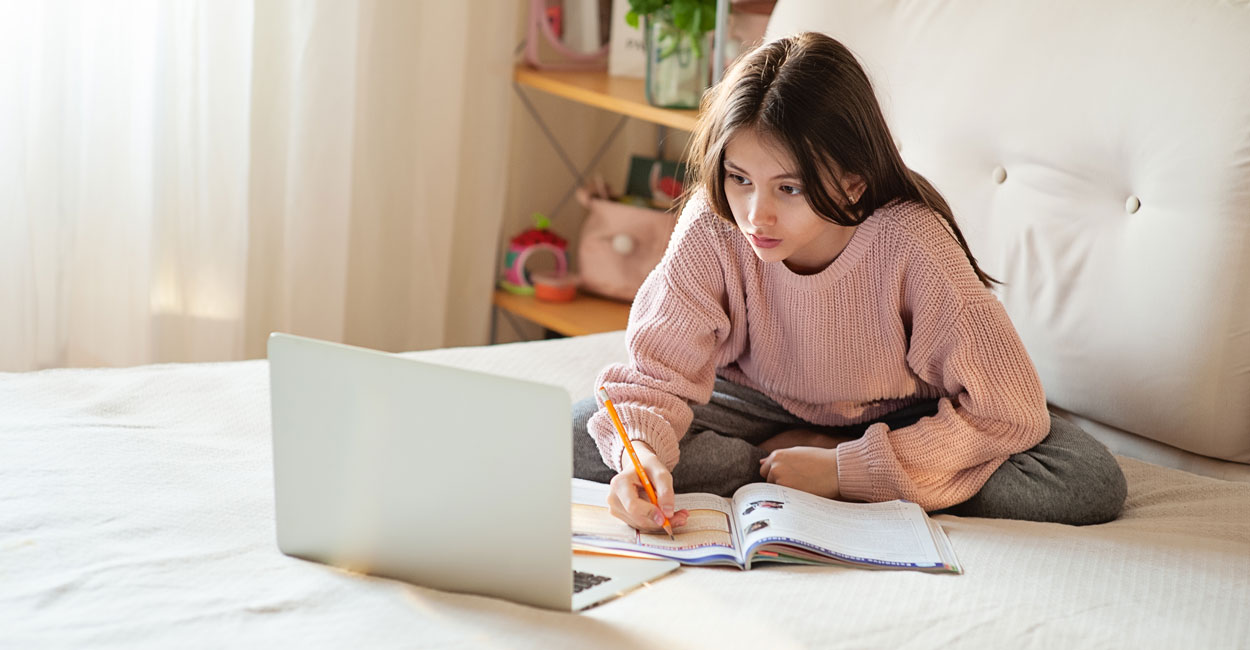[ad_1]
A majority of
parents now say
they are “somewhat” or “much more” favorable to homeschooling, after
experiencing it because of the recent coronavirus-spurred school closures.
Many parents likely think that the increased time with their children has been valuable in some way, but they are not prepared, for a variety of reasons, to become full-time homeschoolers.
Given these better-than-expected experiences with homeschooling, and the likelihood that the coronavirus will persist in some form, more families will seriously attending a “hybrid homeschool” next year.
Students likely
will learn from home again in substantial ways next school year—either due to formal
school shutdowns or school schedules of two or three days a week to allow for
more social distancing within school walls.
Students in
conventional public and private schools are used to spending 30 hours or more
per week in school buildings. That structure was completely upended this spring,
and students are spending all learning hours at home.
Although
parents may see more positive benefits from homeschooling for a few months, the
unexpected transition to home learning has been difficult for many
parents.
There is a
school sector, however, that can meet the needs of many parents and students
during the upcoming school year–hybrid homeschools. Schedules vary, but in
these schools students typically attend classes a few days per week and are
homeschooled the rest of the week.
These
hybrids might be considered more formalized versions of homeschool co-ops, as
they often offer a full range of classes and teachers provide most, if not all,
of the work to be done on the home days.
Students,
parents, and teachers in hybrid schools have practice toggling back and forth
between home and school, changing modes regularly. My research on these schools
has found that parents like the schedule flexibility and the time with their
families.
One hybrid school founder reports that
students have missed no instructional time at all, and that “current families are also thanking God
for the blessing of our hybrid homeschool because it has meant the world for
the students to be able to continue with some type of routine.”
While many parents have become more open to homeschooling,
they may not want five-days-a-week homeschooling for long stretches during the 2020-21
school year.
Hybrid homeschools
are mostly private, though there are some examples of charter schools and programs
within conventional public schools organized this way. Because hybrids have lower
costs, private versions typically have tuitions of less than $5,000 per year.
This puts hybrids in the range of funding levels of most existing or proposed
state education savings
account (ESA) programs.
To the
extent private school families are hurt economically by the virus, many may end
up sending their children to public schools next fall. This sudden, potentially
large enrollment increase in public schools will affect state budgets.
EdChoice’s
Robert Enlow notes: “If only 10% of
private school students return to the public system, the combined state and
local cost would be $6.7 billion, with $3.3 billion falling to the states.”
During the
first four years of the Great Recession (2007-2011), private school
enrollments fell by over 600,000 students, an 11% decline. States already are feeling
the pain of lost revenues during the pandemic, and so from a purely budgetary perspective,
they should augment existing scholarship programs—or create new ones—to keep
students enrolled in private schools.
In a recent
survey of 849 teenagers, Common Sense
found that only 31% of public school students report interacting with their
teachers at least once per day during the shutdown. Thus, many parents may be
concerned that conventional schools aren’t likely to provide the best possible
education as the virus affects school operations next year.
Before COVID-19
hit, American society already was moving in the direction of more people
working from home. The virus is only going to accelerate that trend. Others who
can’t work from home may have nontraditional but predictable schedules.
Many
families are having positive experiences with the virus-induced version of
homeschooling they are living with now.
Most probably do not see themselves as future full-time homeschoolers.
But finding
a system in which their kids can be at home more and gain experience working in
both an online and physical environment at a low tuition cost—as with hybrid
homeschools—may be a more attractive option for many American families.
[ad_2]
Read the Original Article Here

